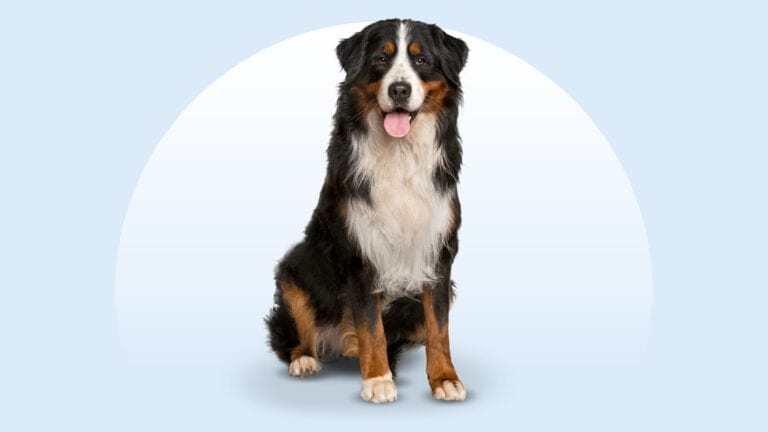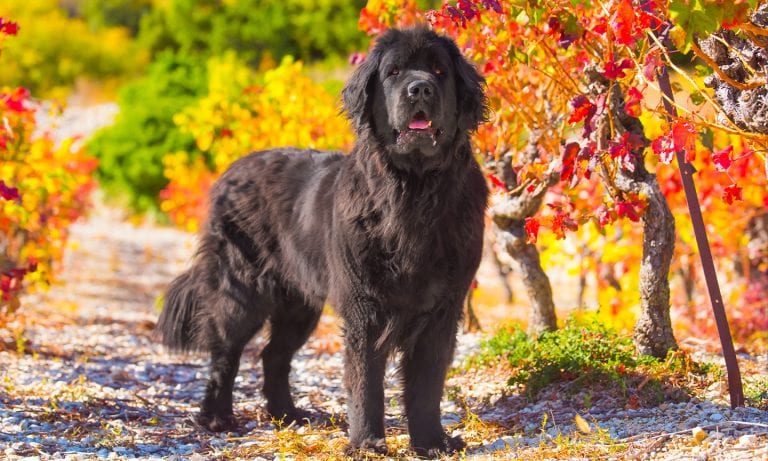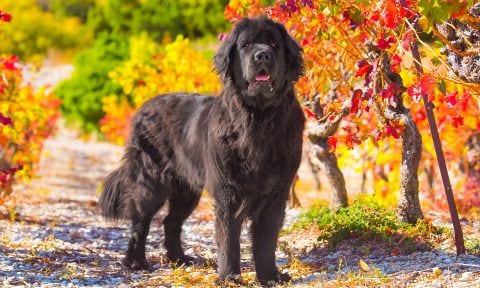Bernese Mountain Dog vs Newfoundland

Breed Snapshot
Best For
Bernese Mountain Dogs are gentle giants with a calm demeanor and loyal nature. They're ideal family pets who thrive with moderate exercise and a hearty helping of love.
Bernese Mountain Dog Temperament
Bernese Mountain Dogs have an affectionate temperament, making them great as a pet. Give your Berner lots of attention. This isn’t a dog who wants to be left alone in your yard outside. They might get bored and start barking at the birds to keep themselves entertained! Berners als...
Bernese Mountain Dogs have an affectionate temperament, making them great as a pet. Give your Berner lots of attention. This isn’t a dog who wants to be left alone in your yard outside. They might get bored and start barking at the birds to keep themselves entertained! Berners also love to explore, so take them with you on your adventures. And at the end of the day, they’ll love nothing more than to cuddle up with you, enjoying the quiet times as much as they enjoy playtime.
These dogs also are smart and eager to please. Bred to be working dogs, they thrive with structured games or sports. Although they’re not the high-energy type like a Border Collie or Jack Russell Terrier, they still need daily exercise to meet their energy level needs. They’ll love activities like carting, drafting, herding, agility sports or scent work.
Although the Bernese breed is a powerful, large dog, they’re also docile and sweet. They have a lot of patience and are known to be good with children. (As with any dog, children should be taught how to interact gently and respectfully with their furry friends.) Like many dogs, however, they might be cautious or shy around strangers or in new situations. That’s why it’s so important to socialize them as puppies. Because they’re big, they might forget their own strength, especially when they’re younger than 3 or 4 years old and feeling extra playful. So, it’s good to keep an eye on younger Berners when they’re with kids and babies or smaller pets like cats. But overall, they’re really quite calm and sweet-tempered.
Bernese Mountain Dog Traits

Breed Snapshot
Best For
Newfoundlands, known for their gentle giant demeanor, need regular exercise and grooming. They thrive in families with space and love water activities.
Newfoundland Temperament
Newfoundlands are known for having a patient and gentle personality. They love being around their people and are naturally friendly with strangers. Just like any other breed, they need early socialization (aka exposure to new people, places and things) to understand how to play appropriately with other dogs; sometimes the goofy Newfie doesn’t realize...
Newfoundlands are known for having a patient and gentle personality. They love being around their people and are naturally friendly with strangers. Just like any other breed, they need early socialization (aka exposure to new people, places and things) to understand how to play appropriately with other dogs; sometimes the goofy Newfie doesn’t realize how big they are! But consistent training will help your Newfoundland puppy grow up to be a confident, well-mannered dog.
The sweet-tempered Newfoundland makes a great family dog, as they typically get along well with kids of all ages, including babies and toddlers. While it may be cute, make sure your child doesn’t sit or ride on your Newfie. The dog may tolerate it, but as they get older, health problems like hip dysplasia can make them uncomfortable. This breed isn’t known for having aggressive tendencies, so pain is about the only reason a Newfoundland would growl or bite (outside of typical puppy behavior).
While the Newfoundland breed is often treated as family (especially in the United States), they are still used as working dogs in their home provinces of Newfoundland and Labrador, Canada. Originally bred for their skill at water rescues and to haul in fishing nets, today, the dogs are used for pulling carts or as pack horses. (And you may find they enjoy participating in “working” dog sports like carting and drafting competitions.)




